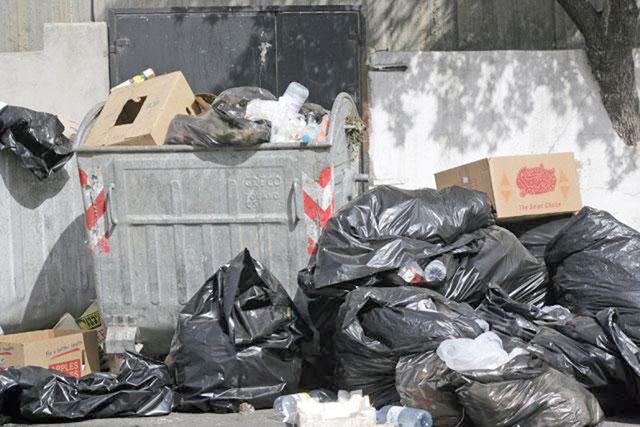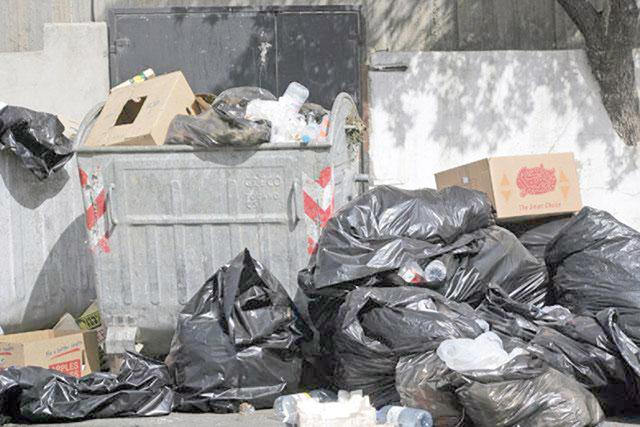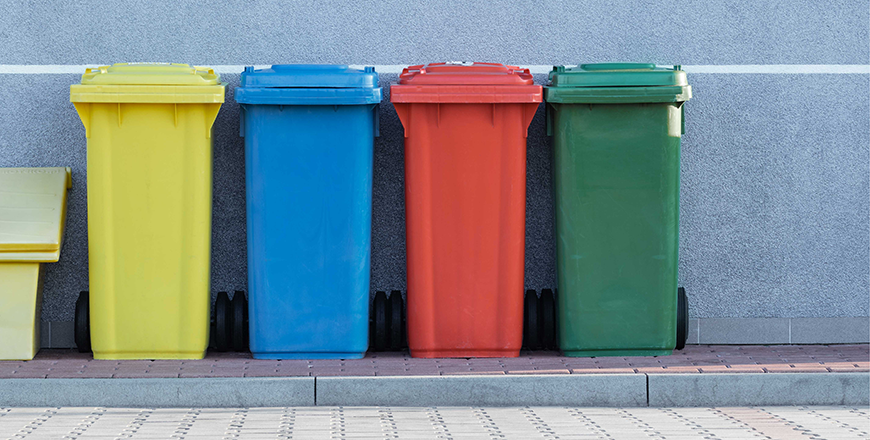You are here
Preoccupied with ‘making ends meet’, Jordanians tend to neglect green habits — report
By Maria Weldali - Jan 26,2020 - Last updated at Jan 26,2020
AMMAN — In the Kingdom, recycling efforts are relatively low-priority for citizens, as 56.7 per cent of Jordanians struggle with “fragile and unpredictable financial conditions”, according to the 2019 Recycling in Jordan Country-Wide Research Report.
The report, commissioned by OXFAM charity, aimed to synthesise the behaviours of Jordanians in respect to solid waste management and recycling.
Results of the report showed that, due to the Kingdom’s current economic challenges and wide-ranging unemployment, “the vast majority of its citizens focus on making day-to-day ends meet”.
The main socio-economic drivers for waste management in Jordan are financial incentives and a desire to create cleaner surroundings, the report showed.
It highlighted barriers to making environmentally friendly choices, noting that the current solid waste management (SWM) infrastructure “does not meet the demand to clean up garbage-filled public areas — let alone facilitate recycling”.
A lack of community engagement and a shortage of government-led initiatives also pose challenges to green habits, the report said.
The report also showed that 45.9 per cent of Jordanians believe that the primary motive for recycling lies in its contribution to a cleaner environment, while 21.1 per cent are encouraged to recycle by the possibility of making money.
A mere 3.8 per cent of people in the Kingdom recycle on a daily basis, while 7.3 per cent recycle weekly and 17.7 per cent recycle as regularly as daily, weekly or monthly.
The report indicated that the SWM culture is “shifting” as awareness-raising initiatives target schools, community clubs and after-school programmes, aiming to entrench green habits in society.
Raising awareness on recycling, transforming behaviours in regard to SWM and promoting the principle of cooperation, as well as mitigating the cost of waste management and prolonging the longevity of dumpsters, are among the concrete goals of the Greater Amman Municipality (GAM), Manager of the Environment Studies and Awareness Department at GAM Omar Arabiyat told The Jordan Times on Sunday.
“The cost of waste management comes to JD65 million per year, but because of Jordanians’ clear awareness on the importance of SWM and recycling, the Kingdom has stepped up to meet environmental challenges,” Arabiyat said.
Among GAM’s current environmental projects is phase three of a biogas project at Ghabawi landfill, which aims at recovering methane gas to generate electricity, Arabiyat said, adding that recycling saves energy and extends the life of landfills.
He also highlighted a waste segregation project launched in November 2019 that focuses on separating waste at the source by utilising a circular economy, with the ultimate goal of protecting the climate and resources.
GAM began collecting recycled waste in January 2020 at three trial locations, including Radwan neighbourhood, Rawaq neighbourhood and the downtown area, he said.
The municipality also runs a number of additional environmental projects aiming to impact society and the environment, which are evaluated by conducting periodic checks.
According to a statement shared with The Jordan Times on Sunday, another measure, the SWM Governance Project in Amman, aims to examine the current SWM situation and update regulations to create a comprehensive waste management system.
Related Articles
AMMAN — The second and third pilot stages of the “sorting waste at source” project will be operationalised during the first half of 2021 in
AMMAN — Growing industrialisation, high population growth and immigration rate have led to a rapid increase in solid waste generation in Jor
AMMAN — Even after implementing a slew of policies and programmes, Solid Waste Management (SWM) remains a challenge for Jordan, according to
















